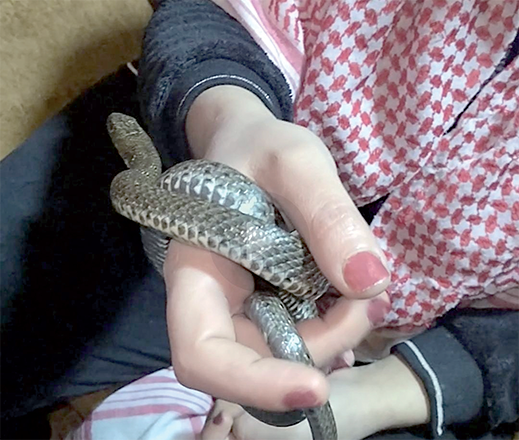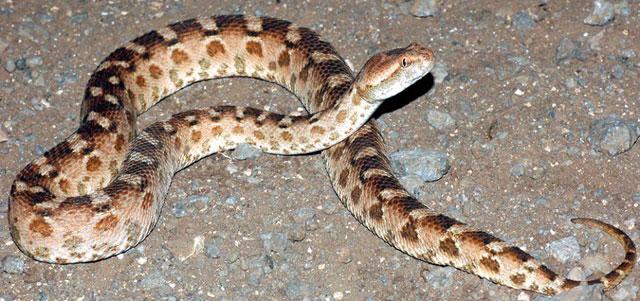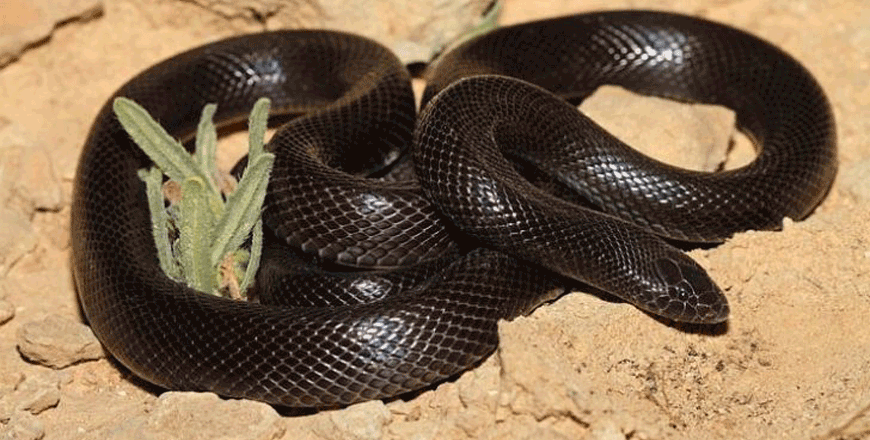You are here
Jordanian woman becomes Kingdom’s first female reptile expert
By Rayya Al Muheisen - Apr 20,2023 - Last updated at Apr 20,2023

Facing fears and confronting societal norms, 30-year-old Jordanian Hiba Da’ja has become the Kingdom’s first female reptile expert, and is working to become the first community reptile educator in the region (Photo courtesy of Hiba Da’ja)
AMMAN — Facing fears and confronting societal norms, 30-year-old Jordanian Hiba Da’ja has become the Kingdom’s first female reptile expert, and is working to become the first community reptile educator in the region.
A nursing graduate with a lifelong interest in reptiles, Da’ja originally worked as a full-time nurse in at the Royal Medical Services. “My journey was full of obstacles; I had to start from scratch,” Da’ja told The Jordan Times.
Da’ja began volunteering with a local reptile expert in 2019, where she studied reptile anatomy and venom composition, as well as the proper medical approaches to reptile-caused injuries.
Combined with her nursing training, Da’ja’s volunteer experience allowed her to identify a unique lack within the Kingdom: a female reptile expert specialised in treating women with reptile injuries, especially snake bites.
In Jordanian culture, which is known to be on the conservative side, having a woman able to diagnose and treat reptile caused injuries makes seeking treatment more “comfortable and convenient for many females in the country,” Da’ja said.
Through “rough experiences” and practice, Da’ja became the Kingdom’s first female reptile expert, adding that she owes her knowledge to her mentor, snake expert Yasin Sqour.
In addition to identifying which reptile caused the injury and prescribing the correct medication for treatment, Da’ja is also a reptile handler, catching reptiles found in houses and releasing them in the wild.
“Working with reptiles is an interesting field full of adventures and dangers,” said Da’ja.
Da’ja is “always on the run”. Whenever she receives a call from a person with a reptile bite, she runs to the emergency room, diagnoses the injury and the type of reptile that caused it, grabs the correct anti-venom from her own “home pharmacy” and hands it to the medical staff to administer to the patient.
“We receive donations of reptile anti-venom. Unfortunately, the Ministry of Health does not provide the correct anti-venom to treat injuries caused by local reptiles — especially snake venoms,” Da’ja said.
Giving patients the wrong anti-venom has many serious potential side effects, including kidney failure, blood poisoning and chronic infections, she added.
Beyond the world of reptiles, Da’ja’s next goal is to become Jordan’s first female expert in predatory animals.
Related Articles
AMMAN — The Ministry of Agriculture on Tuesday denied rumours about the proliferation of the Daboia palaestinae, also known as the Palestine
AMMAN — In addition to harming the environment and ecosystem, experts have identified the phenomenon of killing non-poisonous snakes as the
AMMAN — A woman in her 20s was bitten on her leg by a snake on Wednesday and later sought medical treatment at the Princess Raya Hospital in


















